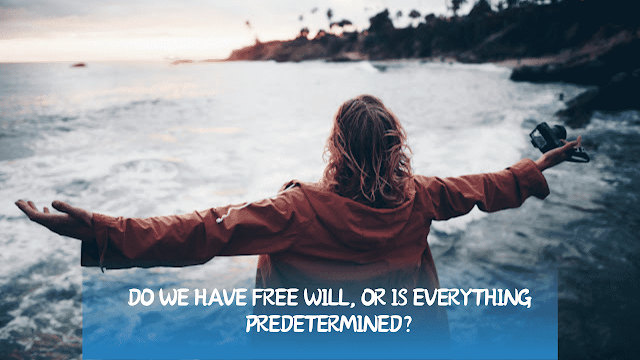The debate between free will and predetermination has fascinated people for centuries. It's all about whether we have the power to choose our actions freely or if everything we do is already decided by factors beyond our control. This isn't just a philosophical puzzle—it's about how we see ourselves and our place in the world. Supporters of free will believe we make decisions based on our own thoughts and values, suggesting we shape our own paths through our choices. On the other hand, those who argue for predetermination believe our actions are largely influenced by things like biology, psychology, and the environment, suggesting our futures are somewhat predetermined. This debate isn't just theoretical; it touches on our sense of responsibility, how societies function, and even what it means to be human
The Concept of Free Will:
Free will means we can make choices based on our own thoughts and feelings, even though the world works in predictable ways. Supporters of free will believe that while our actions are influenced by our surroundings, we still have the power to decide. Philosophers explore this by looking at situations where people might choose differently than expected, showing that our decisions aren't always completely shaped by our circumstances. This idea isn't just about theory—it's about how much control we have over our lives and what it means to be responsible for our actions. It's a deep topic that challenges us to think about what guides our decisions and shapes who we are.
The Concept of Predetermination:
People have debated for ages whether we truly have the freedom to choose our actions or if everything is already decided in advance. Supporters of free will believe we can make choices independently, based on our own desires and thoughts. They argue that our ability to choose makes us morally responsible for our actions. On the other hand, those who support predetermination think that every action we take is already determined by previous events or conditions, leaving little room for true choice.
Scientific Perspectives:
In the world of science, this debate touches on fields like neuroscience, psychology, and physics. Neuroscientists have found that our brains often start making decisions before we are even aware of them, suggesting that our choices may be influenced by subconscious processes. Psychological studies show that factors like our upbringing and environment also play a big role in shaping our decisions. In physics, while classical theories suggest a deterministic universe where everything follows strict rules, quantum mechanics introduces uncertainty at the smallest levels of particles and events, which adds a new twist to the debate.
In simple terms, philosophers argue about whether we have real freedom to choose, while scientists explore how our brains and the world around us might limit that freedom. Both perspectives offer different ways of understanding how much control we really have over our actions.
Implications of believing in free will or predetermination
The argument over free will and predetermination influences how we perceive our life. Those who believe in free will believe that we have power over our own decisions and are responsible for our acts. This idea promotes personal development and moral accountability. Predeterminationists, on the other hand, believe that everything, including our acts, is predetermined by forces beyond our control, such as genetics or fate. This raises questions about duty and fairness. Both ideas shape how we think about ethics, society, and ourselves as people, influencing how we make decisions in life.
Final Thoughts
the Difrence between free will and predetermination asks whether our choices are genuinely ours to make or if they're already decided by external forces. This question is fundamental to how we perceive ourselves and our place in the universe. Whether we believe in shaping our destinies through our decisions or in a predetermined path set by fate or a higher power, these beliefs profoundly influence how we understand responsibility and navigate life's uncertainties. While there's no definitive answer, exploring these ideas encourages us to reflect on the complexity of human existence and the meaning we derive from our choices. It challenges us to consider the balance between agency and external influences, shaping our perspectives on personal autonomy and our interconnectedness with the world around us.

